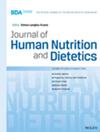Artificial Intelligence in Clinical Nutrition: A Descriptive Comparison of ChatGPT- and Dietitian-Planned Diets for Chronic Disease Scenarios
Abstract
Purpose
Nutrition-related chronic diseases are among the leading causes of morbidity and mortality worldwide. The increasing prevalence of obesity and changes in lifestyle and dietary behaviours have necessitated innovative approaches in nutritional care. In this context, artificial intelligence (AI) tools such as ChatGPT have emerged as potential aids in generating personalized dietary recommendations. However, their reliability and clinical utility remain underexplored.
Methods
This study aimed to assess the reliability and appropriateness of ChatGPT in creating diet plans for individuals with obesity and diet-related non-communicable chronic diseases. Dietary plans were generated by both a registered dietitian and ChatGPT for hypothetical individuals with identical clinical profiles and conditions. These plans were then evaluated comparatively in terms of nutritional adequacy, safety, individualization and practicality.
Results
ChatGPT-generated diets demonstrated notable deficiencies in meeting specific energy and nutrient requirements and lacked personalization based on individual health needs. In several cases, contraindicated foods were included. These findings highlight the potential risks of using AI tools in clinical dietetics without professional oversight. Ethical and safety considerations are critical when integrating AI into healthcare services.
Conclusion
ChatGPT cannot currently substitute for individualized dietary counselling provided by qualified dietitians, particularly due to its inability to offer tailored motivation, emotional support or clinically safe recommendations. Nevertheless, further research is warranted to optimize the role of AI in diet planning and to enhance its integration into personalized nutrition care.


 求助内容:
求助内容: 应助结果提醒方式:
应助结果提醒方式:


